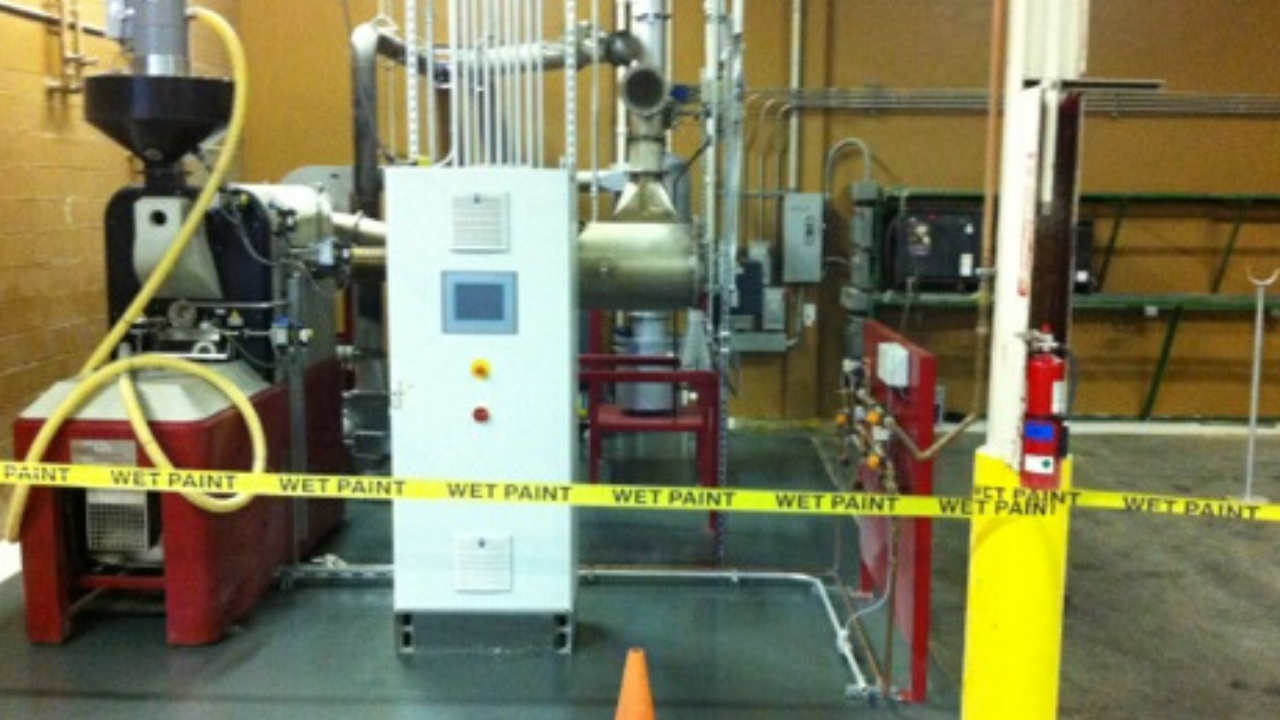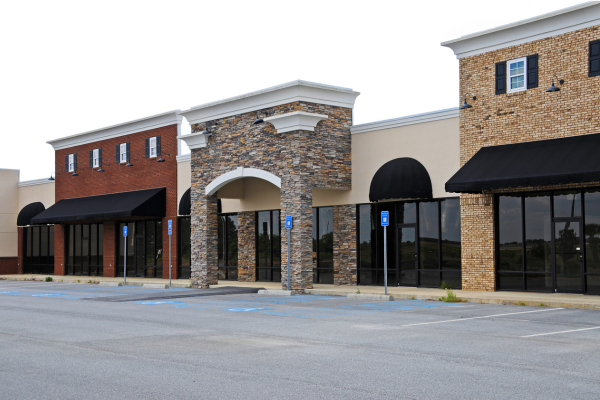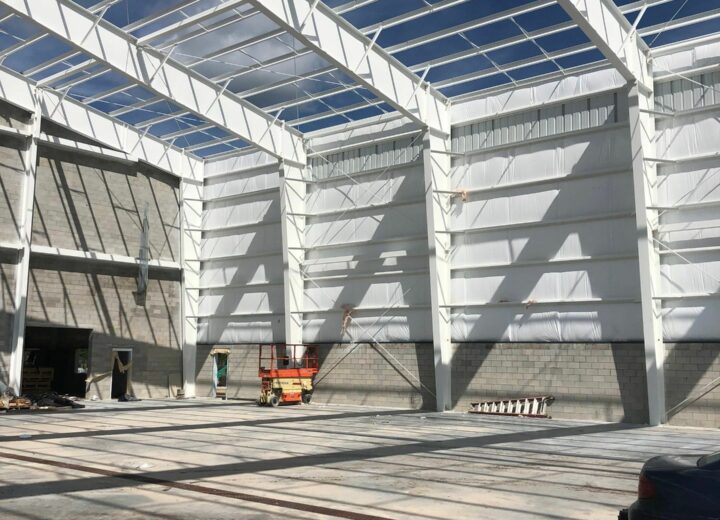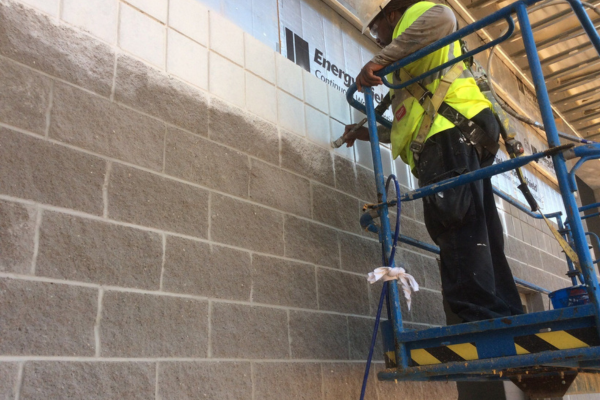
Commercial paint coatings are commonly applied to metal and concrete structures that need paint protection against mechanical, chemical and environmental degradation.
Currently, this industry segment includes a wide array of coatings that can fit different requirements. That being said, selecting the most appropriate industrial coatings for each application is key to a long-lasting paint job.
Because there are so many types of paint coatings, we’re going to review some of the coating products our painting contractors have successfully used in many projects.
Types of Paint Coatings
Organic coatings
These coatings contain carbon, refined and/or modified petroleum products as well as different solvents, pigments, additives, and fillers. This category includes products like:
- Alkyd coatings – Alkyd coatings can be applied to prepared substrates in various environments. Depending on the ingredients incorporated, alkyds can stand up to different rigors in interior, exterior, underground and underwater applications. On the downside, alkyds use oxygen in order to complete the chemical reaction that turns them into durable finishes. Since oxygen needs to disperse throughout the paint film, these coatings take longer to dry compared to other products.
- Epoxy coating systems – Epoxies define a large, high-performance group of coating products, with excellent film-building, mechanical and chemical properties as well as short curing and drying times. Epoxy coating systems can bond to different surfaces, including steel, zinc, aluminum and galvanized components. This makes them optimal choices for many industrial painting projects that demand maximum protection against normal wear and tear, abrasion, corrosion, moisture, water, salt air, fuels and chemicals as well as non-oxidizing acids, alkali and salts in immersion.
- Polyurethane coatings – Enhanced with specialty additives, polyurethane coating products are characterized by exceptional resistance to corrosion, abrasion, chemicals and weathering processes. As a result, they can fit a wide variety of industrial applications.
Inorganic Coatings
In order to provide protection against various stressors in industrial environments, inorganic coatings are formulated with ingredients like enamels, additives and pigments. Below are three inorganic coatings commonly used in industrial applications.
- Acrylic coatings – Although alkyd coatings are still dominant in many painting industries, waterborne paint coatings are gaining increasing acceptance for industrial and commercial applications. To provide adequate protection, acrylic coatings contain more binders and additives designed to high performance standards, and fewer pigment dispersants, surfactants and rheology modifiers that negatively affect corrosion resistance.
- Ceramic coatings – In addition to improved durability, chemical and corrosion protection, ceramic paint coatings exhibit unique characteristics, like superior thermal insulation as well as chemical and dimensional stability. In industrial painting projects, ceramic polymer coatings can be used to protect tanks and piping systems against water, moisture, UV radiation, chemicals and high operating temperatures. However, these coatings shouldn’t be applied to components that will be exposed to tensile or compressive stress. Plastic deformation can lead to fracture, compromising the integrity of the coating.
- Intumescent coatings – Exposed to extreme heat or open flames, intumescent coatings expand into thick, foam-like layers that insulate structures from fire. Because these coatings can maintain the integrity of different components in case of fire, they’re some of the best choices for high-heat applications.
Metallic and powder coating systems can also be specified for different industrial applications, but they can only be applied under controlled, stable factory conditions.
Providing painting services across the US since 2001, our painters have always considered the type of application along with the intended use of each area before recommending coatings. That’s because there is always a very good reason why one type of coating is better for a project than another.






